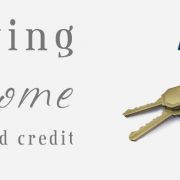Plenty of Approval Advantages of Fixed Rate Home Loans
The benefit of the Fixed Rate Home Loans is that the payment is the equal each month. This unavoidability makes it easier to create your financial plan. No needs to worry about future higher payments like you do with an adaptable-rate mortgage. You reimburse a small amount of the principal every month. That automatically enhances your home equity. That’s different an interest-only loan.
You can make additional payments to recompense your principal before. Many fixed-rate loans don’t have pre-payment fines. It’s also an ideal loan if you consider interest rates will be higher over the next coming years. That’s because your rate is imprisoned.
Benefits of Fixed Interest Rate
However, the fixed interest rate stays steady for the complete loan duration. This home loan interest rate doesn’t differ as per to the increase and decrease in the market.
As this interest rate doesn’t vary after a while, you need to reimburse a fixed monthly instalment during the period. Thus, you can simply and precisely plan your money under this kind of rate of interest.
It is the perfect option for individuals who are good at financial plan and choose a fixed EMI schedule.
If the economic situation points out that there are possibilities of an increase in the interest rates in the future, this is an ideal option that a borrower should opt to make sure that he or she can persist to pay a smaller amount as interest.
As a final point, opting for the kind of interest rate that you should prefer is a personal choice with Low Interest Home Loans. What works for a person might not necessarily be the right choice for you. If you choose to plan well further on when it comes to your finances and not run off anything to possibility, a fixed rate would be better suitable to your requirements.












